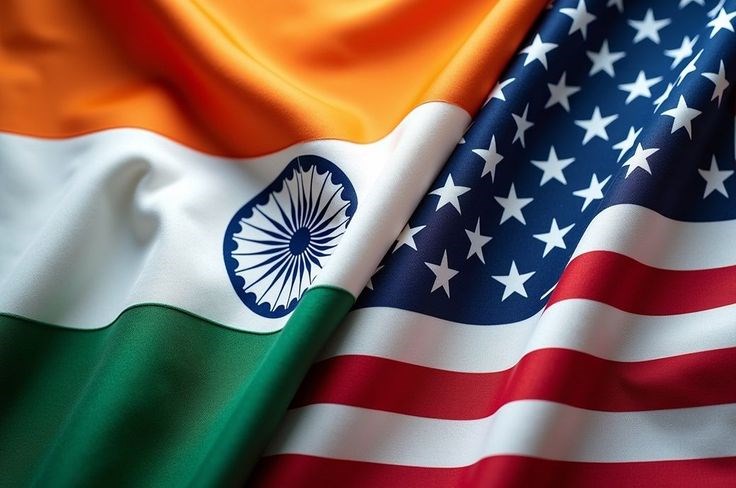
08-Aug-2025 , Updated on 8/8/2025 6:43:55 AM
As an Indian, can we trust on USA?
History Shows Strategic Shifts
The US foreign policy demonstrates some dramatic changes that are fostered by the global interests of the US. This natural fluctuation has been shown by historical alignments with Indian opponents. The US is most concerned with its own strategic calculus. Therefore, there is no absolute trust. India should be realistic and accept the alterations in US policy on shifting priorities. The top priority is strategic autonomy. Dependence on one partner, such as the US, goes against the necessity of an independent India that protects the national interests of the country.
Defense Ties Strengthen Strategic Trust
Defence relations are a central feature of strategic trust building between India and USA. Joint military training sessions, such as the foundational documents between India and the US, including COMCASA and BECA, as well as major US weapons sales, show a greater level of collaborative cooperation. These practical measures boost interoperability directly and indicate a common desire to achieve regional security goals, especially in the sphere of common concerns. The active military cooperation also results in a viable dependence and trust in combined abilities. The expansion of defense relations gives a practical basis on which there can be strategic trust based on certain security results made by the alliance.
Trade Policies Reveal Diverging Interests
Recent US trade policies point to a clash of interests in India. Policies of the Americans focus more on national security and economic recovery within the United States which are usually in conflict with Indian objectives. Limits to exportation of high-tech attempts to restrain China and disrupts manufacturing aspiration of India. The Indian generic drug manufactures and farmers are trapped into US agricultural subsidies and exertion of pressure on intellectual property rights. These policies indicate that the US is always seeking its selfish interests. Trust means accepting that interests are divergent; it cannot be expected that goals are the same. Collaboration is only effective when both parties prosper. The US is a reliable country that always acts in its perceived interest which is often not in line with the needs of India.
Shared Values, Differing Priorities Persist
India and the USA have a foundation of mutual trust that is founded on their common values such as democracy and a rules-based order. Cooperation is backed by good people-to-people relations and economic relations. Nevertheless, complete trustfulness cannot be given. This will cause tension due to differences in priorities regarding strategy. The competing interests are reflected by the US relations with Pakistan, the differing approaches to the global conflict, and the trade issues. Policy consistency is also influenced by change of domestic politics in the US. Cooperation exists in defense and technology, but India cannot be idealistic. Trust exists on certain common goals but there must be continuous regulation of the differences in priorities as we cannot ignore the fact the US has (narrow) national priorities in its actions.
Trust Requires Consistent Engagement Now
Trust in the relationship between India and the USA does not come automatically; it has to be constructed and reinforced. Meaningful and results oriented actions should be done by the US. Long-term behavior must be consistently reinforced by words. Trust does not need intermittent, but consistent and predictable interaction at a high level. The US has to show its firm commitment by actions given mutual interests and strategic differences over time. The foundation of true trust can be achieved through consistent reliable behavior. It is not enough to preach in words; it is the necessity now, to take a firm, constant step to action.

Content Writer
Hi, I’m Meet Patel, a B.Com graduate and passionate content writer skilled in crafting engaging, impactful content for blogs, social media, and marketing.
Join Our Newsletter
Subscribe to our newsletter to receive emails about new views posts, releases and updates.
Copyright 2010 - 2026 MindStick Software Pvt. Ltd. All Rights Reserved Privacy Policy | Terms & Conditions | Cookie Policy